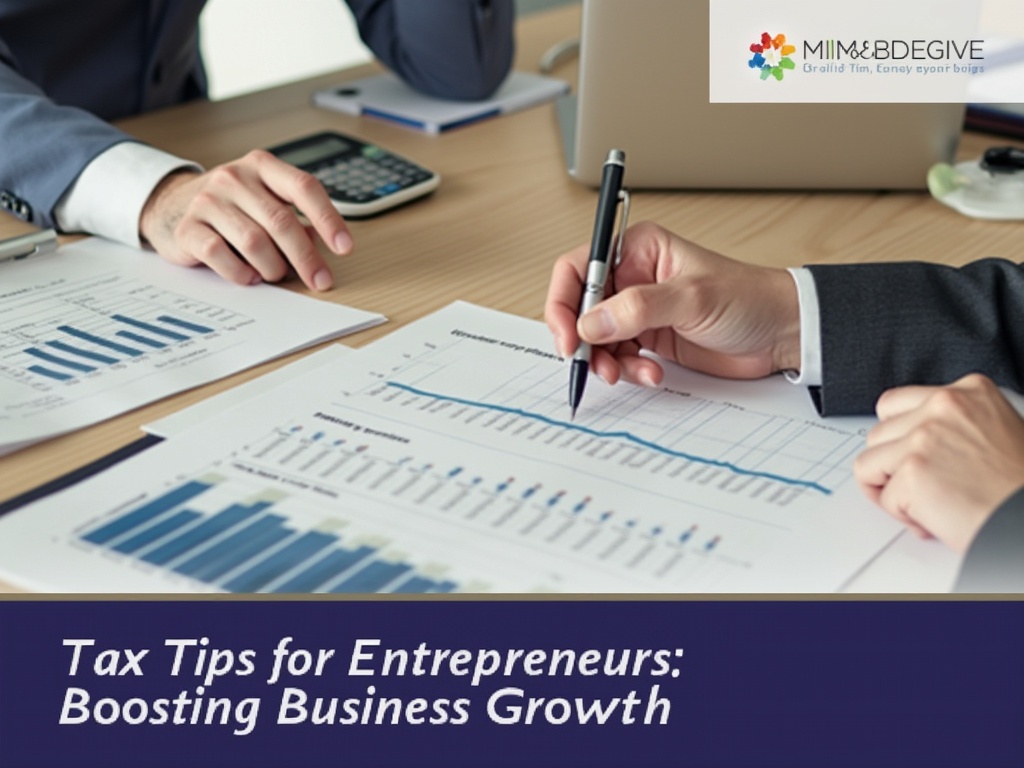Understanding tax planning is essential for entrepreneurs aiming to boost business growth and sustain financial well-being. Effective strategies—leveraging tax deferrals, optimizing deductions, and supporting policy reforms—play a vital role in enhancing cash flow, maximizing returns, and encouraging investment in new ventures.
Key Takeaways:
- Splitting income into capital and labor sectors can significantly impact tax planning and investment returns. Be aware that higher tax rates might deter entrepreneurial initiatives.
- Implementing tax deferral strategies enhances cash flow and increases capital availability for reinvestment. Delaying tax liabilities can offer more room to maneuver.
- Maximize business deductions, including those for meals, travel, and office expenses. Proper documentation can substantially reduce tax burdens.
- Support tax policy reforms, such as a flat tax rate or rebates for losses, to encourage entrepreneurship through risk-taking and innovation.
- High fixed costs associated with tax compliance present a challenge. Consider consulting with tax professionals for effective strategic planning.
Tax Strategies to Enhance Entrepreneurial Success
Entrepreneurs often split their income into capital and labor income. This division impacts tax planning. Capital income includes investment returns, while labor income encompasses earnings from efforts. Effective tax rates can affect a company’s investment returns. Higher rates may necessitate higher returns, potentially discouraging new ventures.
Leveraging tax deferral strategies offers significant advantages. Entrepreneurs can potentially defer capital gains taxes until they realize profits. This can reduce the immediate tax burden and enhance after-tax returns.
Benefits of Utilizing Tax Deferral Strategies
- Increased Capital for Reinvestment: By delaying taxes, more funds remain available for reinvestment in the business.
- Improved Cash Flow: Retaining capital longer can improve a company’s cash flow.
- Compound Growth: Deferred taxes can enable the compound growth of investments without the drag of annual tax payments.
Careful planning around these strategies helps optimize finances and stimulate business growth.

Maximizing Business Deductions to Reduce Tax Burden
Effective tax management is crucial for entrepreneurs aiming to grow their business. Understanding deductible expenses can significantly reduce your tax burden. Small businesses can take advantage of deductions such as:
- 50% of business meals.
- 100% of travel expenses.
- Office equipment costs.
These deductions align with IRS guidelines, ensuring compliance while optimizing your potential savings.
Claiming these deductions requires accurate record-keeping. Ensure that you maintain detailed records, including receipts and invoices, to substantiate your claims. Expenses like business meals should be documented with dates, attendees, and the business purpose of the meal. For travel expenses, provide travel itineraries, tickets, and hotel receipts. Keep a comprehensive list of office equipment purchases with associated invoices.
Regarding start-up and organizational costs, the IRS allows you to deduct up to $5,000 each for these expenses, provided the total costs do not exceed $50,000 in each category. If your start-up or organizational costs are above $50,000, the deduction decreases dollar-for-dollar. Any excess over $5,000 must be amortized over 15 years.
Understanding the limits and regulations of these deductions ensures you don’t overlook potential savings. Taking full advantage of available deductions can free up resources for reinvestment in your business, facilitating further growth. Regularly consulting with a tax professional can offer insights into complex tax situations, enhancing your financial strategies.

Reforming Tax Policies to Spur Entrepreneurial Growth
Implementing a 20% flat tax rate can significantly increase entrepreneurial activities, potentially tripling them. When profits and losses are taxed differently, it impacts risk-taking behavior. Entrepreneurs might shy away from investment opportunities under progressive tax schedules that penalize higher earnings.
To combat this, offering tax rebates to non-corporate firms for losses beyond taxable income could stimulate growth, possibly increasing entrepreneurial activity by 50%. Such strategies alleviate financial burdens during challenging times, incentivizing further investment and innovation.
Analyzing these tax reforms reveals their profound influence on entrepreneurship. By aligning tax structures to support risk-taking and innovation, governments can nurture a thriving business landscape. Entrepreneurs, in turn, gain confidence to pursue ventures that drive economic growth.

Understanding the Challenges of Tax Compliance
The fixed costs associated with tax compliance can often stymie entrepreneurial ventures, both new and established. These expenses, which do not fluctuate with sales volume, can strain resources and impede business decisions. High compliance costs can therefore lead to losses, making the journey less appealing for budding entrepreneurs or causing premature business closure for existing ones.
Consider the example of a small retail start-up. This business might face a significant financial outlay just to ensure adherence to tax regulations, which adds financial pressure before any sales are made. Similarly, a local cafe might decide against hiring more staff due to the financial burden from fixed compliance costs.
Understanding these complexities, entrepreneurs should consider consulting with tax professionals who can provide guidance and navigate these challenges efficiently, potentially transforming a daunting process into a more manageable task.
Sources:
Tax Policy and Entrepreneurship: A Framework for Analysis
25 Small Business Tax Deductions (Write Offs) in 2025
Publication 583 (12/2024), Starting a Business and Keeping Records
Taxes and Entrepreneurial Activity
34 Big Tax Deductions (Write-Offs) for Businesses in 2025

